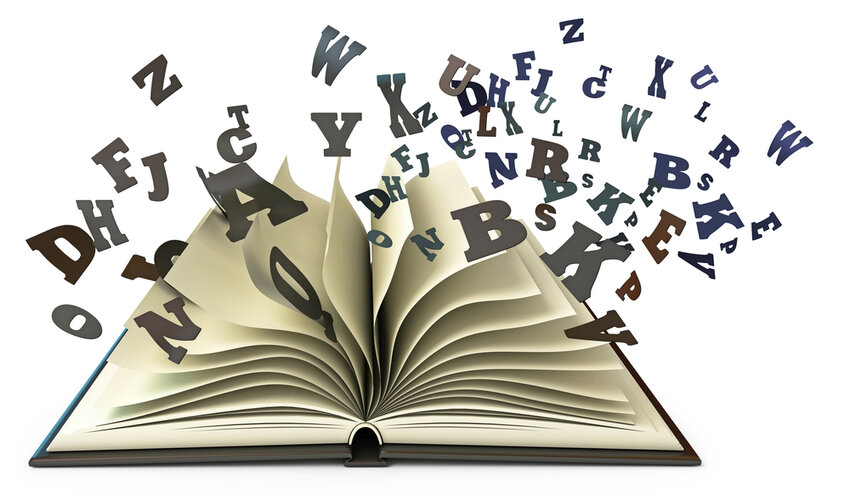As writing changes, the lines separating genres become need to be clearer. This is clearest in how big US book companies work, where accepting stories that don’t fit into any genre has become a sign of innovation. The author of this article talks about how Random House, HarperCollins, and Simon & Schuster have changed the literary world and started a new age of storytelling.
The Development of Genres:
Genres in writing have changed a lot over the years, going from being rigidly put into groups to becoming more fluid and changing constantly. For a long time, genres were just handy labels that made it easy for readers to find tales with certain themes. However, this method stifled creativity and forced writers to fit into certain molds. Big US book companies like Random House, HarperCollins, and Simon & Schuster have changed this story in important ways. These publishers pioneered a new era of genre-blurring by mixing genres, including multiple perspectives, and supporting unorthodox storytelling. This transformation has improved literature and motivated writers to explore new story genres, ensuring a more creative literary future.
Random House: Pioneering Genre Blending:
Random House has been a leader in printing for a long time and has become known for combining different types of books. It also has supported writers who dare to cross the lines between different genres, breaking free from the limits of traditional labels. “Cloud Atlas,” by David Mitchell, is a great example because it combines science fiction, historical drama, and stories set after the world’s end. Random House has changed the writing world by creating a place where people can be creative without limits. This dedication to stories that don’t fit into any genre makes reading more enjoyable. Also, pushes the industry to adopt a broader view of storytelling. Random House is a revolutionary company in the publishing world. They are pushing the evolution of writing into exciting new areas.
The Difficulties And Benefits Of Genre-Defying Literature:
Genre-defying literature is a source of inspiration but also has obstacles and benefits. Publishers had difficulty selling these stories because they didn’t fit the usual promotional molds. For readers who are used to clear genre differences, the initial confusion could be a problem. But the rewards are very great. Genre-defying writing makes people think and pushes them to deal with ambiguity and complexity. The story’s flexibility allows for exploration beyond the limits of standard storytelling. Leading to a deeper understanding of what it means to be human. By creating a diverse body of literature, these works break down ethnic barriers. It also adds to social conversations and starts deep conversations. Ultimately, the huge benefits of a literary world not limited by genre greatly outweigh the problems that publishers and users face.
Finding The Lines Between Fantasy And Reality:
Literature has made the area where fantasy and reality meet a central focus for professional authors. Who wants to captivate readers with stories beyond normal limits? Knowing that the line between the fantastical and the real is not a solid line but a shifting range, writers skillfully walk this fine line. Well-known writers like Haruki Murakami know how to blur the lines between the real and the imaginary. Weaving stories that are both interesting and scary simultaneously. Learning this skill opens up a world of creative options for expert book writers and lets readers explore the complexities of the human experience. More people want stories that don’t fit into any one genre. Writing that balances enchantment and reality will revolutionize the literary world and leave an indelible impression.
The Rise of Stories That Cross Genres:
With the rise of stories that bravely cross standard genre lines, the literary world is changing in big ways. Authors aren’t limited by single categories anymore. They’re writing stories that combine parts from different genres, making a tapestry of stories that are hard to put into a single category. This is especially clear in the growing success of speculative fiction, which mixes science fiction, fantasy, and reality in a way that makes sense. China Miéville’s crossover novels like “Perdido Street Station.” are examples of this trend. Accepting stories that cross genres challenges accepted norms and gives readers a more dynamic and immersive reading experience. By encouraging new studies of how different parts of the human experience interact.
Affects Readers And Cultural Discourse:
Genre-defying writing has a big effect on readers and on how people talk about culture. Because standard rules don’t limit these stories, they force readers to consider different points of view and figure out difficult themes. Immersing yourself in stories that don’t fit into any genre builds empathy and encourages readers to accept ambiguity and question social rules. As readers try to make sense of complicated stories, cultural discourse grows to include more opinions and ideas. Genre-defying literature starts important talks that make people question their deeply held beliefs. In the digital age, sites like professional ghostwriting services are important for spreading these stories and making the cultural landscape more intellectually rich. Genre-defying literature gives readers more than just entertainment. Moreover, it engages students in a conversation that reveals how human experience is growing more complex.
Simon & Schuster: Embracing Nontraditional Perspectives:
Simon & Schuster has always strongly supported writing that breaks normal rules and looks at things from different points of view. The publishing giant has been looking for stories that challenge social norms for decades. Also, give different views a chance to be heard. Chimamanda Ngozi Adichie’s book “Americanah” is a great example. Because it explores the complicated issues of race, identity, and migration in a deeply real and highly detailed way. Authors like Simon & Schuster are actively shaping a catalog beyond standard genres and story structures, which is a big part of how literature changes. This dedication expands the cultural conversation and fosters a more inviting literary scene where underrepresented voices can influence storytelling rules. As innovators, Simon & Schuster cleared the road for alternative writing.
The Future Of Books That Don’t Fit Into Any Genre:
As we gaze into the future of literature, it is evident that books defying traditional genres will play an increasingly pivotal role. The evolution of reader preferences and the ever-expanding creativity of authors suggests that the era of rigid genre classifications is waning. Major United States book publishers online like Random House, HarperCollins, and Simon & Schuster will likely continue championing narratives that transcend conventional boundaries. This trend promises a more diverse and inclusive literary landscape and signifies. A broader cultural shift towards embracing complexity and ambiguity in storytelling. Meanwhile, in a world where limits are continually redrawn, novels defying categorization can lead readers into unknown realms and challenge established literature.
Conclusion
In conclusion, the stories that don’t fit into any genre released by major US publishing houses are the next big thing in literature, and creativity knows no limits. Random House, HarperCollins, and Simon & Schuster have all greatly impacted this landscape. They have helped create a new age of storytelling that breaks rules, celebrates diversity, and deepens cultural dialogue. As readers, writers, and publishers all take this trip together, the future of literature seems limitless. Genre-defying stories will lead the way into new and exciting literary areas.
Author Bio:
Mark Jone is a seasoned wordsmith, navigating the virtual realms of literature with a distinct flair for storytelling. As a professional book writer, Mark has established himself as a prolific and versatile author, captivating readers with his imaginative narratives and literary prowess.




